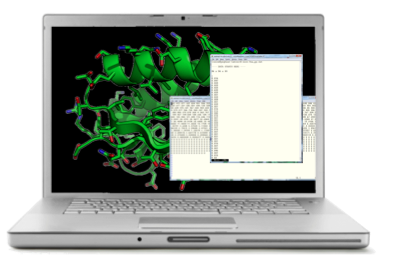< Computational Protein, Enzyme, and DNA Design
Computation-guided Protein Design

Computation-guided Protein Design

The advent of economical gene synthesis is making it easier than ever to engineer completely new proteins. Computational protein design is a promising strategy to take advantage of our new found latitude. Previous computational protein design efforts have led to extraordinarily stable proteins (melting temperatures above 99°C). However, the same algorithms also can lead to unfolded, aggregated, or destabilized proteins. It remains challenging to reliably design properties of interest (structure, stability, catalysis) into synthetic proteins. Furthermore, directed evolution raises the bar for computational design; it is often possible to optimize a protein of interest via screening libraries of random mutants thereof.
We aim to develop new methodology for reliable computational protein engineering, and to apply these methods to develop new enzymes with bioenergy applications (e.g. cellulase enzymes with long lifetime at high temperature). To validate the designed proteins we solve the crystal structures.